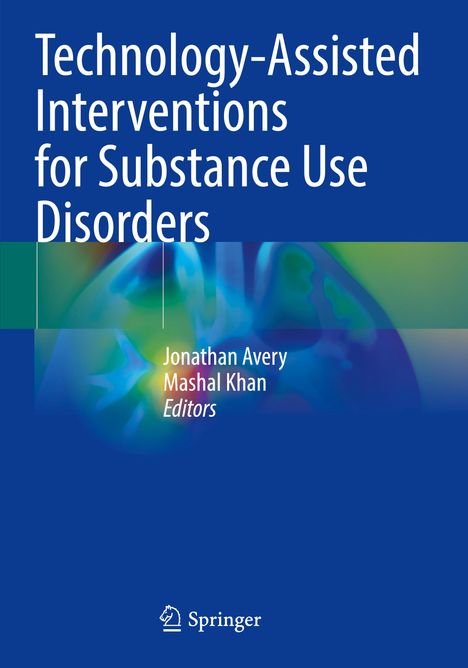Technology-Assisted Interventions for Substance Use Disorders, Kartoniert / Broschiert
Technology-Assisted Interventions for Substance Use Disorders
(soweit verfügbar beim Lieferanten)
- Herausgeber:
- Jonathan Avery, Mashal Khan
- Verlag:
- Springer, 06/2024
- Einband:
- Kartoniert / Broschiert, Paperback
- Sprache:
- Englisch
- ISBN-13:
- 9783031264474
- Artikelnummer:
- 11894319
- Umfang:
- 140 Seiten
- Gewicht:
- 310 g
- Maße:
- 254 x 178 mm
- Stärke:
- 8 mm
- Erscheinungstermin:
- 11.6.2024
- Hinweis
-
Achtung: Artikel ist nicht in deutscher Sprache!
Weitere Ausgaben von Technology-Assisted Interventions for Substance Use Disorders |
Preis |
|---|
Klappentext
This book examines the role of technology-assisted interventions for substance use disorders (SUD). It considers this topic alongside the dramatic increase in SUDs and associated harm in the United States' past decade. Chapters relay the impact and effectiveness of technology-assisted interventions, which include telemedicine, assisted therapies, and support. These treatments not only offer practical care but also address the issue of access to care, particularly in the wake of the global pandemic (COVID-19). Organized into three sections, section one covers the use of telemedicine and technology-assisted therapies as it relates to the treatment of various SUDs, achieving recovery and maintenance. Each chapter will expand on a specific aspect of technology-assisted intervention. Following this, section two explores the differences in technology-assisted interventions and approaches while taking into account age, gender, sexuality, identity, and psychosocial factors. This section will be divided into chapters on children and adolescents, women and pregnancy, older adults, LGBTQIA+, and professionals. To close the book, section three discusses the media impact on SUDs and the legal technology adopted by drug courts.
Unique and timely, Technology-Assisted Interventions for Substance Use Disorders is an invaluable resource to learners and practitioners in the field. It provides a concise yet comprehensive summary of the current status of the field that will help guide the implementation of technology-assisted interventions for all SUDs into practice and stimulate investigative efforts.

